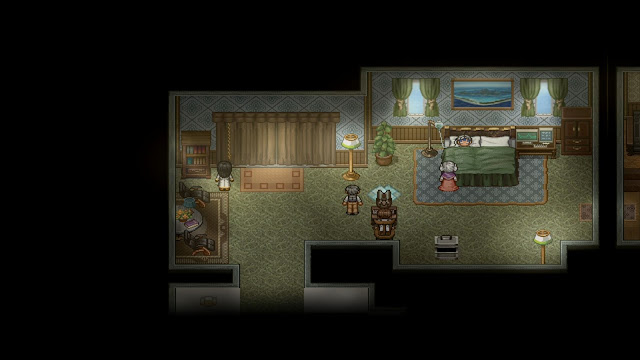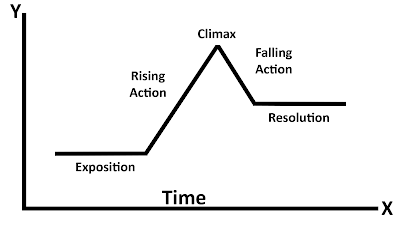Review - Finding Paradise
Freebird Games has succeeded at delivering the same greatness that was To the Moon in Finding Paradise. There is the same touching story and the same charm. However, it also brings with it almost every fault of To the Moon. Finding Paradise delivers a heart-wrenching story while lacking any gaming narrative elements to it, with a bit of the tacked on gameplay that was seen in To the Moon.
The basic premise is that the player is a pair of doctors whose job is to enter a dying person’s mind and fulfill their final wishes by rewriting their memories. To do this, the player walks around and interacts with a few objects to further the story. Basically, most of the game lacks meaningful gameplay. You walk around, initiate every prescribed plot point, then you leave. That’s the brunt of gameplay. While this void of gameplay allows for a much smoother telling of the narrative, it should leave one asking why Finding Paradise is a game. There are a few mostly meaningless choices that can be made, but they tend to decide between flavors of the other character’s actions (such as whether a person is mad at you or happy) rather than doing anything significant. There is no purpose to any of Finding Paradise’s gameplay.
It is worth noting the few mini-games. Like To the Moon, Finding Paradise requires the player to play a small game (a connect three game) to progress from one level to another. It is almost entirely disjointed from any other element of the game. The mini-games could be removed with no loss to the experience, and that would probably actually make the experience a bit better. Now, Finding Paradise did try to thematize the connect three game by presenting each element of the game in relation to how memories are formed, such as tiles that the player can’t move an item through being described as memories paths that are blocked. It was a nice attempt, but ultimately had little success due to the fact that the memory metaphor didn’t change the fact that the connect three game was so tactlessly presented. Those moments were just fluff that likely existed because someone thought that a game has to have “gamey” elements to it.
The narrative of Finding Paradise was, in my opinion, superior to To the Moon’s. The reason for this is that Finding Paradise tries to say a lot more than its predecessor. Of course, they both have equally heart wrenching stories of loss and regret, but those elements are fleeting and easily forgotten when the next heart wrenching piece shows up. From my perspective, a heart wrenching story is good but a story that is trying to be more than the sum of its parts is better, and Finding Paradise tried much harder to express a central theme.
Finding Paradise's connect three minigame.
Finding Paradise asked the question of what reality really is and to what extent that question matters to an individual. The premise basically screams for this question to be asked, as the doctors are literally creating histories to make a person’s life seem more rewarding to them. However, while To the Moon mostly ignored it, only making passing remarks, Finding Paradise tackles it head on. The developers juxtaposed the history of Colin, the main character, with the medical procedure. In the process, what would likely have been an initial revulsion on the part of the player as to the former would have to be reexamined as they consider what their main goal is. The main character’s also have to come face to face with the same realization and bring new insights into how reality and fallacy might build one’s history. I would be more specific, but that would require dropping major spoilers that would potentially change the experience significantly.
The greater story arch is also further in this game, but not significantly, from what I could tell. There is an overarching story between games, but Freebird is taking their time in giving it to the player. It would be nice to see something significant to the characters happen in this greater arch, because it seems to just be filler at this point. Like To the Moon, there’s Watts’ addiction and some ominous project but very little, if anything, happens.
I did note that the same flaws from To the Moon still exist, and one of those major flaws is the developer’s inability to show discretion in their use of humor. The characters, especially the more archetypally nerdy Watts, make humorous quips and references through the game. That is all fine and good, but they continue to make the same quips during the climaxes of the story. The otherwise emotional or suddenly frantic atmosphere is broken by a joke. It’s not an end of the world issue as one can just roll their eyes and move on, but Freebird needs to learn to use some discretion and not break the atmosphere that they spend so much time setting up. Humor has its place and should remain in the general humdrum of the story rather than the most un-humorous of moments.
The narrative is great and is a league beyond most game’s stories, but it fails on a pretty massive part: being a game. Finding Paradise’s story cannot be hailed as a great step forward in gaming narrative because it has no gaming elements to it. If one were to remove the player from the experience, the story would be unchanged in every way. There would be no loss of theme or emotional impact. This is a film that requires someone to click through it. That is what really makes the few gameplay elements of Finding Paradise seem so weird and forced because outside of it there is no gameplay. This is actually an interactive film and not a game, the main difference being that a game finds significant elements of its theme through it’s interactive elements (a.k.a. gameplay, the two terms are interchangeable) while interactive film has no thematic interactivity. It’s a bit of a shame that that’s the case but, unless you want to examine this piece as a game, it doesn’t make a meaningful difference in ones experience of the work.
Overall, Finding Paradise is everything that To the Moon was, good and bad, but with a more robust story. It examines how fantasy and personal history mesh and asks how and if the two concepts are any different. Like To the Moon, there is a heart wrenching story that delves into the history a dying man with the main character’s goal being to fulfill his dying wish. It is a great story and great experience. On the flip side, the same ill-timed humor still exists with characters making quips during emotional moments that counter the tone of the scene. This is, like it’s predecessor, an interactive film as opposed to a game and, as such, it’s more about viewing the story than doing. Finding Paradise is a great story that surpasses its predecessor. If you enjoy an emotional narrative, interactive films, or liked To the Moon, then this is a must buy. Freebird has shown that To the Moon was no fluke.





Comments
Post a Comment